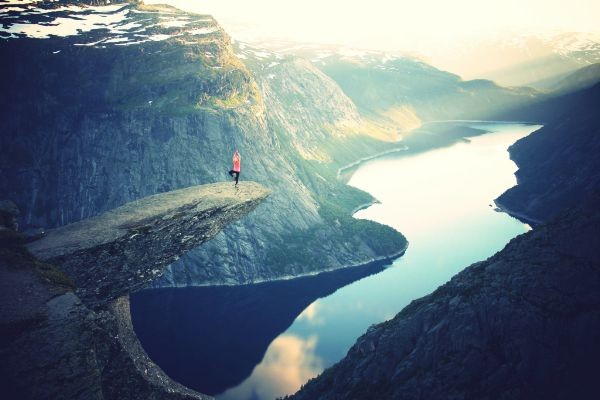BOGOTA — Aurora María Izquierdo, a 57-year-old native Colombian and founder of one of the country's organic coffee brands, thinks caring for nature should always takes precedent over money.
How, she wonders, can mining companies pollute the country's fresh water sources with mercury, rob native communities of their lands, and divert rivers and streams? How can large cattle ranches degrade soil and cut down down thousands of trees, just so that a few people can get rich? How, given everything we know about climatic change, can people still worry more about money than their own health?
As an Arhuaco Indian of the Sierra Nevada de Santa Marta, near northern Colombia's Caribbean coast, Aurora was one of the first women of her community to leave the native reserve and enter higher education. She earned an agronomy degree from the National University, and from there set about creating her own coffee company — one of the greenest around.
The company is called Anei, meaning "delicious" in Iku (the Arhuaco language). And it makes only organic coffee, meaning no synthetic chemicals — fertilizers or pesticides — are used in the production process. The Anei project isn't just friendly to the environment: It also benefits 538 families from the Arhuaco, Kogi, Wiwa and Kankuamo tribes, which now export the fruits of their labor to places like the United States, Japan, Canada and the EU.
The families work in 64 communities or settlements in the Sierra Nevada, using practices that follow the native view of the universe. They engage in rituals, offerings and dances like the zamuyuna to ensure a good quality harvest. They are always protective of seynekun (mother nature) and guided by mamos, spiritual leaders that send their energy toward the earth.

Member of the Anei project harvesting coffee beans — Photo: Facebook page
"Our way of thinking is reaffirmed in what we produce," says Aurora. "We support the communities so they can have things like solar panels. We boost their ideas and bring them together, and allow young people to empower themselves and take over different processes and generate new know-how."
Saving the soil
Coffee is a major industry in Colombia, where it supports more than 500,000 families. Overall, the country produces some 14.2 million sacks of coffee and exports to 44 countries, according 2015 figures from the National Federation of Coffee Farmers (FNC, in Spanish).
It is precisely because of the industry's size and impact, say people like Aurora, that standard growing and production practices ought to be reexamined. The Anei project, with its focus on the environment and community participation, is still the exception to the rule. But it's not the only one.
In the community of San Pedro de la Sierra, also in the Sierra Nevada de Santa Marta, 48 plot holders came together to create Montesierra, which has been producing coffee since 2008 that is certified as organic by the influential UTZ and Rainforest Alliance seals. The latter wants to ensure farming will help preserve biodiversity and protect resources, while benefiting growers, workers and their families.
How? Rainforest Alliance works hard to train coffee growers in skills like protecting ecosystems, wildlife and water, creating good working conditions and processing waste. Some 1.2 million growers of a range of crops sport its seal worldwide.

Photo: CafeAnei Organico
"We don't use any components that can pollute crops, because using fertilizers erodes and cracks the soil and in time, makes it less profitable," Montesierra's general manager, Carlos Torres, explains. For fertilizer, the cooperative prefers coffee pulp. It has the added benefit, says Torres, of being cheaper than chemical products, which can cost between 19 and 25 euros per bag.
An Alliance study from 2014 showed that Colombian estates with its seal were not just surrounded by a more varied environment in terms of plants and animals, but enjoyed better quality water and more bankside vegetation, which helps prevent soil erosion and reduces fire risks.
Empowering women
Elsewhere in the mountain range, Sandra Palacios, explains how guerrilleros with the FARC (Revolutionary Armed Forces of Colombia) murdered her father and brother, then burned the family home in the department of Magdalena. She was 18 at the time.
Her family then turned to farming coca and marijuana, as coffee and cocoa no longer seemed profitable. That was until 2007, when Sandra organized with 21 other peasant families to form the Cooagronevada cooperative (Coffee Growers and Farmers Cooperative of the Sierra Nevada de Santa Marta), which today has Fair Trade, organic and IWCA women's seals. The cooperative exports most of its coffee to the U.S. and EU.
The IWCA certificate seeks to empower women coffee workers by improving labor and living conditions and boosting their participation in leadership and decision-making roles.
"It is very important to recognize the role of women who previously did not even dare give their opinion," Sandra says. "Now they are leaders, empowered, trained, sure of themselves. They're independent and informed of their rights and the business."





